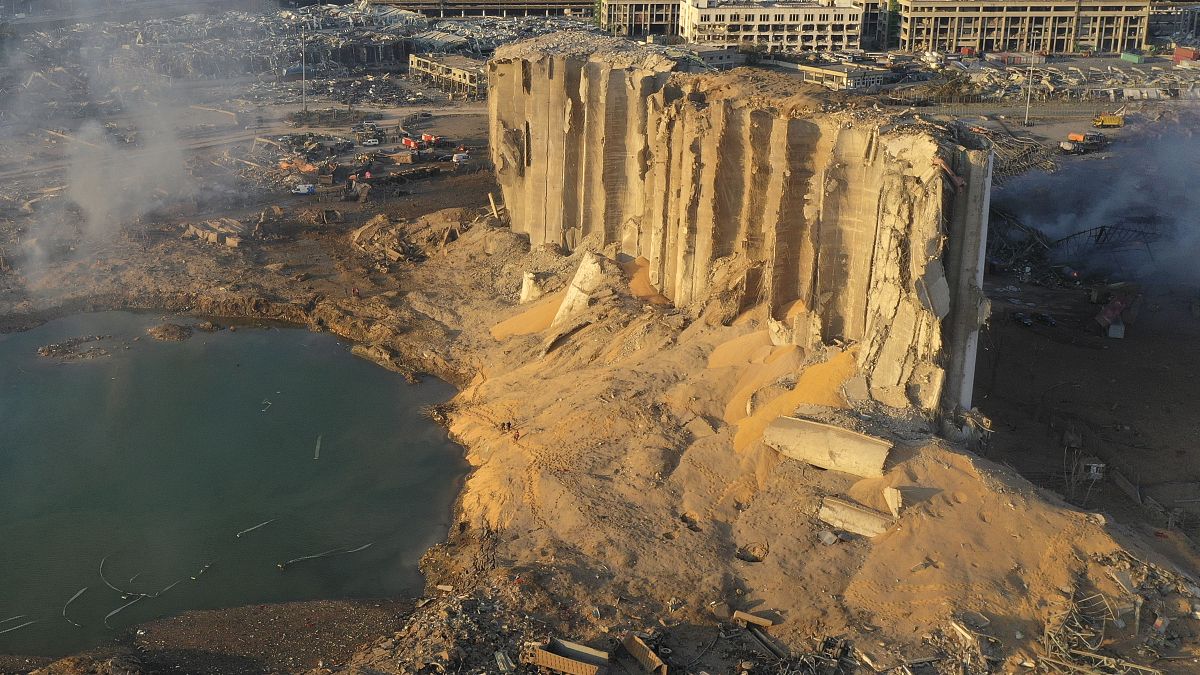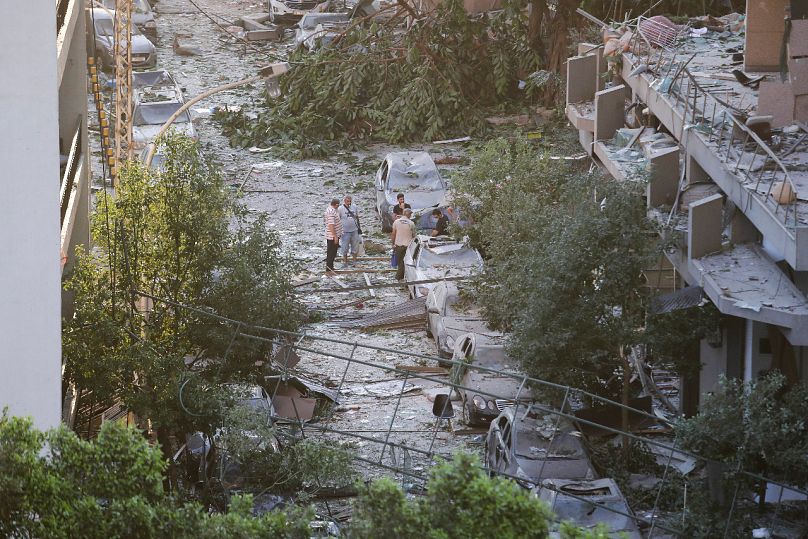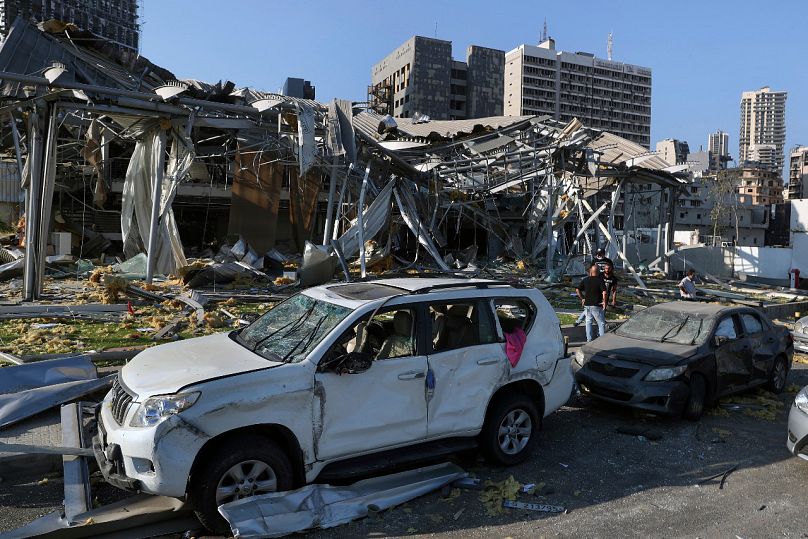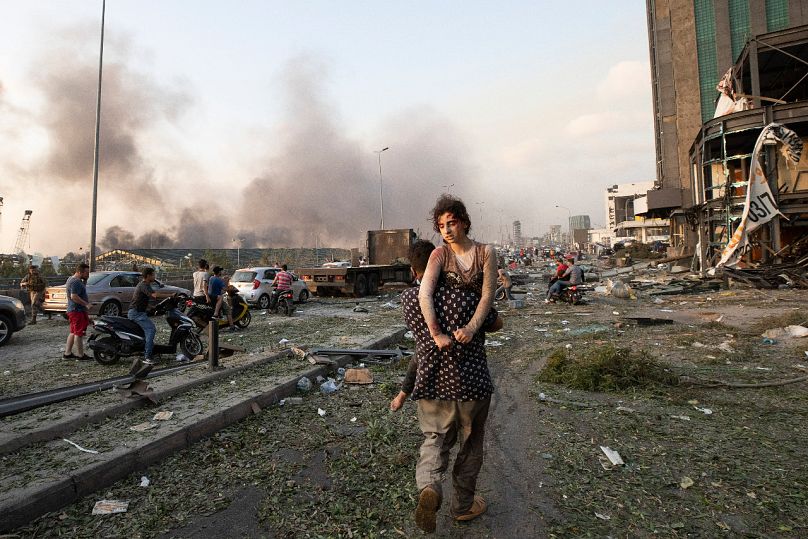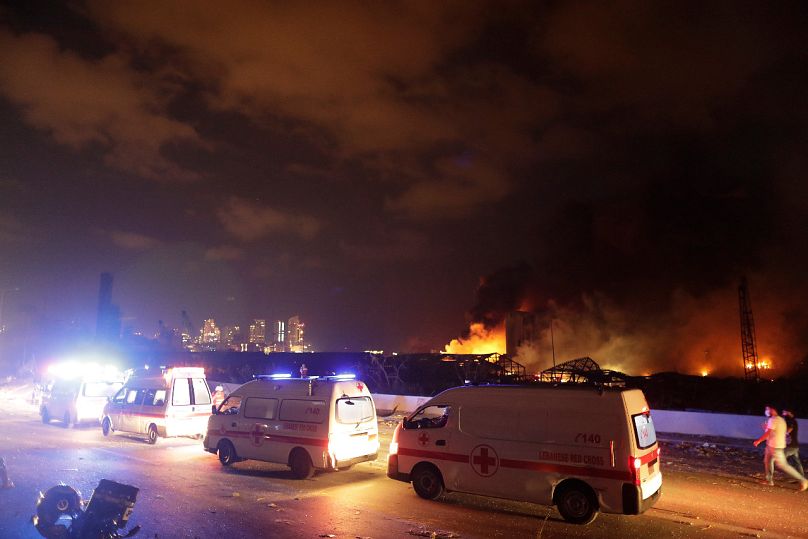Lebanon's Health Minister warned 'there are probably more (victims) under the rubble".
This article dates from Wednesday. Click here for the latest updates on Thursday.
Rescue operations continued throughout Wednesday in Beirut after a massive explosion devastated the area around the port, killing dozens of people, injuring thousands and destroying buildings across the Lebanese capital.
At least 135 people were killed in the blast and 5,000 are wounded.
Health Minister Hassan Hamad warned that "there are probably many more (victims) under the rubble."
Beirut's governor Marwan Abboud said that between 250,000 and 300,000 residents were left without a home. A two-week state of emergency has been declared in the capital.
Attention has turned to chemicals stored at the port. Government ministers say it appeared that a large cache of ammonium nitrate in the port had detonated. Two explosions were reported and experts believe fireworks may have caught fire, causing the second, massive blast.
Officials have said initial investigations suggested the blast came from material that had been confiscated several years ago. Questions are being asked as to why it was apparently still stored at the port in unsafe conditions.
A security source told AFP the explosive power of the stored ammonium nitrate was equivalent to at least 1,200 tonnes of TNT.
Lebanese port authorities and customs officials knew the chemical was being stored in the port, and one of the country's top security agencies had called for it to be relocated after launching a probe last year, the news agency reported, citing several security officials.
There have been international offers of help following the disaster. The EU is sending 100 specialist firefighters and other material. France is also sending aid and President Emmanuel Macron is to visit Lebanon on Thursday.
Lebanese Prime Minister Hassan Diab has vowed to hold to account those responsible for the explosion and declared three days of national mourning beginning on Wednesday.
Beirut's governor estimated that the damage could cost between $3 billion (€2.5 billion) and $5 billion (€4.2 billion) to repair. Nearly half of the city was destroyed or damaged, Abboud said.
Hospitals, already struggling with the country's coronavirus outbreak, have been overwhelmed by the large number of injured people. Several hospitals were damaged in the blast. Lebanon's Red Cross has called for urgent blood donations.
Many people are believed to be missing and bodies are thought to be buried in the port area under debris. Firefighters backed by army helicopters battled into the night to put out flames.
The second explosion following an initial blast sent a huge orange fireball into the sky. It struck with the force of a 3.5 magnitude earthquake and was felt as far away as Cyprus more than 200 kilometres across the Mediterranean.
Chaotic scenes were reported in the aftermath of the explosion, which destroyed buildings around the port area, blew out the windows of others across the city and overturned cars. Injured people were seen staggering through the streets.
The disaster comes at a time when the country has been struggling with both the pandemic and a severe economic and financial crisis. The past year has seen protests against soaring unemployment and economic meltdown with many blaming government incompetence and corruption.
